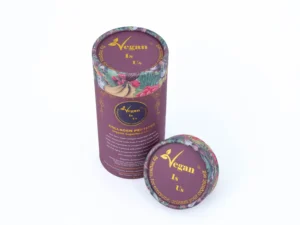Maintaining hormonal balance is essential for overall well-being, yet it can often feel elusive due to the complexities of the endocrine system. Fortunately, plant-based nutrition offers an effective and natural way to support hormonal health. By incorporating foods rich in phytoestrogens, adaptogens, and other nutrient-dense ingredients, a vegan diet can help regulate hormone production, reduce symptoms of hormonal imbalances, and enhance overall vitality.
Understanding Hormonal Balance
Hormones are chemical messengers that regulate a range of bodily functions, from metabolism and mood to reproduction and sleep. Hormonal imbalances can result from various factors, including stress, poor diet, age, and environmental toxins. Common symptoms include fatigue, irregular menstrual cycles, mood swings, weight gain, and more severe conditions like polycystic ovary syndrome (PCOS) or menopause-related discomfort.
Plant-based nutrition can provide a wealth of nutrients and bioactive compounds that positively impact hormonal health. Let’s explore how key vegan dietary solutions can support hormone regulation.
Phytoestrogens: Nature’s Hormone Balancers
Phytoestrogens are plant-derived compounds that mimic oestrogen in the body. While they are not identical to human hormones, they can bind to oestrogen receptors and either increase or decrease activity, depending on the body’s needs. This makes them particularly beneficial for managing hormonal fluctuations.
Top Phytoestrogen-Rich Foods:
- Soy Products: Tofu, tempeh, edamame, and soy milk are excellent sources of isoflavones, a type of phytoestrogen. Incorporating these foods into your diet can support oestrogen balance and alleviate menopause symptoms.
- Flaxseeds: Rich in lignans, flaxseeds provide hormonal support and also promote healthy digestion.
- Chickpeas: A versatile legume packed with phytoestrogens, fibre, and protein.
- Sesame Seeds: Contain lignans that may improve oestrogen metabolism.
- Berries: Blueberries, strawberries, and other berries are rich in antioxidants and can support overall hormonal health.
Adaptogens for Hormonal Health
Adaptogens are plants and herbs that help the body adapt to stress and maintain homeostasis. Chronic stress can disrupt hormone production, particularly cortisol, the primary stress hormone. By modulating the stress response, adaptogens contribute to hormonal balance.
Effective Adaptogens:
- Ashwagandha: Known for reducing cortisol levels, ashwagandha can alleviate stress-related hormonal imbalances.
- Maca Root: Often used to support fertility and libido, maca root is rich in nutrients that bolster endocrine function.
- Rhodiola Rosea: Enhances energy and resilience to stress.
- Holy Basil: Also known as Tulsi, supports adrenal health and balances cortisol levels.
- Schisandra Berry: A powerful adaptogen that helps manage stress and supports liver function, crucial for hormone detoxification.
Nutrient-Rich Superfoods for Hormone Health
A diet rich in vitamins, minerals, and antioxidants is fundamental to hormonal balance. Key nutrients include:
- Omega-3 Fatty Acids: Found in chia seeds, flaxseeds, and walnuts, omega-3s reduce inflammation and support brain health, indirectly influencing hormone regulation.
- Magnesium: Present in leafy greens, almonds, and dark chocolate, magnesium helps regulate cortisol and supports relaxation.
- Vitamin B12: Essential for energy production and hormone synthesis. While primarily found in animal products, fortified plant-based foods and supplements can provide adequate amounts for vegans.
- Zinc: Crucial for reproductive health, zinc is abundant in pumpkin seeds, chickpeas, and lentils.
- Iodine: Necessary for thyroid function, iodine is found in seaweed, fortified plant-based milk, and iodised salt.
- Vitamin D: Important for mood regulation and calcium absorption, vitamin D can be obtained from sunlight, fortified foods, and supplements.
Lifestyle Factors and Hormonal Balance
While diet plays a central role, other lifestyle factors significantly influence hormonal health:
- Regular Exercise: Physical activity can improve insulin sensitivity and reduce stress, both of which impact hormones positively.
- Sleep Hygiene: Quality sleep supports hormonal recovery and balances cortisol levels. Aim for 7-9 hours per night.
- Stress Management: Practices such as meditation, yoga, or journaling can reduce stress and support hormonal equilibrium.
- Hydration: Staying hydrated aids in detoxification processes that help maintain hormonal balance.
Supporting Menopause with Plant-Based Nutrition
Menopause brings significant hormonal changes, particularly a decline in oestrogen levels. A plant-based diet can ease symptoms like hot flushes, mood swings, and sleep disturbances by incorporating the following:
- Calcium-Rich Foods: To combat bone density loss, include fortified plant-based milk, broccoli, and almonds.
- Vitamin D: Essential for calcium absorption and mood regulation. Obtain it from fortified foods or supplements.
- Soy Products: Phytoestrogens in soy can reduce the severity of menopausal symptoms.
- Leafy Greens: Spinach, kale, and other greens provide magnesium, calcium, and antioxidants.
- Whole Grains: Rich in fibre and B vitamins, whole grains can help stabilise blood sugar levels, impacting hormonal balance positively.
Can Plant-Based Nutrition Prevent Hormonal Imbalances?
While dietary choices alone cannot eliminate all risks of hormonal imbalances, they play a pivotal role in prevention and management. A balanced vegan diet emphasising whole, nutrient-dense foods provides the building blocks for optimal hormonal function. Additionally, avoiding processed foods and limiting sugar can reduce the risk of insulin resistance, which is closely linked to hormonal disorders.
Hormone Health Superfoods
For those seeking an easy way to incorporate hormone-supportive nutrition into their routine, Hormone Health Superfoods offer a convenient solution. These blends typically combine ingredients like maca root, ashwagandha, flaxseeds, and adaptogenic herbs, providing comprehensive support for hormonal balance. Adding a scoop to smoothies, teas, or plant-based yoghurt can be a simple yet effective addition to your daily regimen.
FAQs
Can a plant-based diet balance hormones?
Yes, a plant-based diet can support hormonal balance by providing essential nutrients, antioxidants, and bioactive compounds like phytoestrogens and adaptogens. Whole plant foods help regulate blood sugar, reduce inflammation, and support the endocrine system.
Do vegans have higher oestrogen?
Vegans may have higher levels of certain types of oestrogen-like compounds due to the consumption of phytoestrogen-rich foods like soy and flaxseeds. However, these compounds are much weaker than human oestrogen and do not typically cause hormonal imbalance.
Can you reset your hormones with diet?
While diet alone cannot “reset” hormones, it plays a significant role in restoring balance. Eating nutrient-rich, whole plant foods and avoiding processed options can improve hormone production and regulation over time.
Does a plant-based diet help menopause?
A plant-based diet can alleviate menopause symptoms by providing phytoestrogens, omega-3 fatty acids, and other essential nutrients that support hormone regulation and overall health.
Can being vegan cause hormonal imbalance?
Being vegan does not inherently cause hormonal imbalance. However, an improperly planned vegan diet lacking essential nutrients like vitamin B12, zinc, and iodine may contribute to imbalances. Ensuring a well-rounded, nutrient-dense vegan diet or using supplements can mitigate this risk.
How quickly can diet affect hormonal balance?
Changes in diet can influence hormonal balance within a few weeks to a few months, depending on individual factors. Consistency in eating whole, nutrient-rich foods is key to achieving sustainable results.
Plant-based nutrition is a powerful ally in achieving hormonal balance. By incorporating phytoestrogen-rich foods, adaptogens, and hormone-supportive superfoods, vegans can support their endocrine system naturally. Whether you are looking to manage specific hormonal conditions, ease menopause symptoms, or optimise overall health, the right plant-based diet can make a significant difference.
For a convenient way to boost your hormonal health, consider exploring Hormone Health Superfoods at Vegan Is Us. Packed with nutrient-dense ingredients, they’re designed to help you thrive while embracing a plant-based lifestyle.







